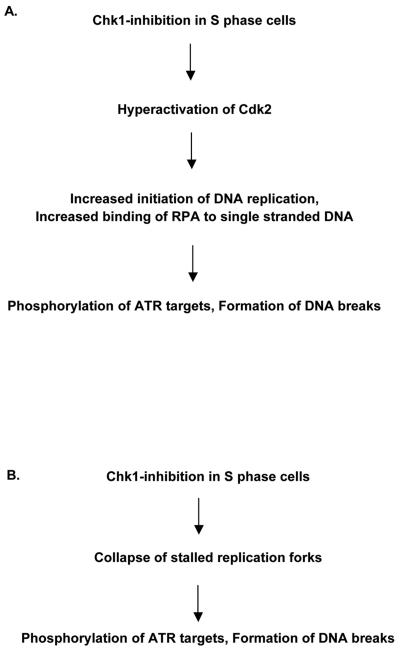FIG. 6.
Proposed models for how Chk1 inhibition causes activation of ATR and massive DNA lesions in S-phase cells. (A) In response to Chk1 inhibition, Cdc25A is stabilized and the Cdk activity is rapidly increased, which leads to increased initiation of DNA replication (as measured here by increased loading of Cdc45 protein to chromatin and an increased rate of overall DNA synthesis). This is accompanied by an increased binding of RPA to ssDNA and subsequent phosphorylations of ATR targets. During this process, DNA is destabilized, leading to formation of DNA strand breaks. (B) In response to Chk1 inhibition, replication forks may collapse due to a lack of Chk1-mediated maintenance of stalled replication forks during normal S-phase progression. This may result in the formation of ssDNA and DNA breaks and in phosphorylations of ATR targets.

